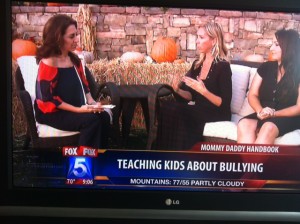We will be launching a 4 part free video training series on this topic in the next couple of weeks – STAY TUNED! Opt into our mailing list to sure to be notified of it’s release, or like us on Facebook.
Educational programs about peer pressure and bullying are rampant. Our society is facing a huge problem at unprecedented levels in today’s world. Schools, and parents alike, are grasping at straws at what to do about this.
Everywhere you look, there are answers – teaching children what to say when they encounter a bully. How to diffuse a situation and tell an adult. Self defense for building confidence. How to stand up to peer pressure in the moment.
While that is all important, it’s vitally insufficient.
Why? Because it does nothing to address the underlying CAUSE of bullying and peer pressure. Both problems, whether you talk about the victim or the perpetrator, all stem from one deep underlying cause.
As a result, my work is focused on educating parents and teachers about a revolutionary, courageous approach to this problem. And it starts long before the child enters the classroom.
3 how tos for parents:
Instead of focusing on fixing the behavior, focus on your connection
Unconditional love, when your child is acting least “deserving” is one of the #1 things you can do to teach your child how to self-soothe and instill worthiness. Denying attention in their moment of distress teaches children that they only are worthy of love when they are acting according to our wishes. Address the behavior in a calm moment, not in the heat of the situation.
Model self-confidence, happiness, loving yourself
Realize children see everything you do and imprint on their subconscious mind (brain development). How do you model self-acceptance and self-love? Do you criticize yourself? How do YOU treat others? Do you yell at the person who cuts you off? Do you demonstrate kindness and empathy? This is especially important up until age 6, where your child’s brain is imprinting on the subconscious patterns that will last a long time. Be mindful and aware of what you DO, and focus less on what you SAY.
Prioritize your child’s attachment to you, not their friends
As a society we are in a rush to “socialize” our children, yet there are long term consequences to this practice that make a big difference in our ability to help our children.

This is awesome that you are posting these tips. As my daughter gets older (she’s almost 7), our concern about bullying is ever-increasing.
I couldn’t get the segment to play. 🙁
Thanks, Laura! If the video isn’t loading, you can try this….
http://landing.newsinc.com/shared/video.html?freewheel=69016&sitesection=kswb_loc_mor_fro&VID=23852097